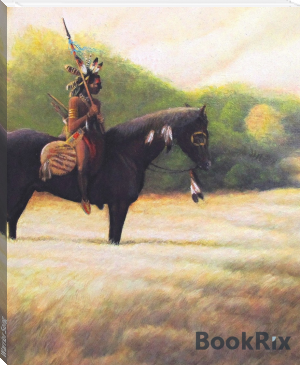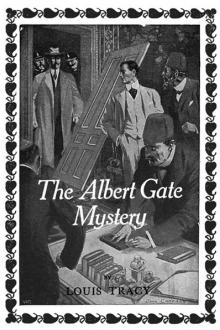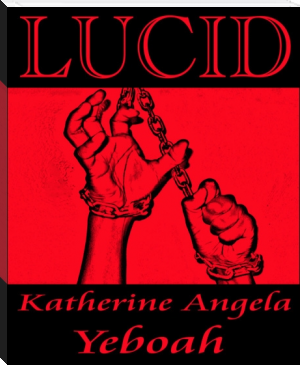Warrior Song by Robert F. Clifton (books to read in a lifetime .TXT) 📖

- Author: Robert F. Clifton
Book online «Warrior Song by Robert F. Clifton (books to read in a lifetime .TXT) 📖». Author Robert F. Clifton
Chapter Three
Carlisle
Lieutenant Alan McKenzie sat patiently as Colonel Willett examined the photographs that had been present to him. When he was finished he looked up and said, “Gruesome, totally gruesome. However, you obtaining these photographs from the New York City Police Department proved a point. You accomplished what the Pinkerton Agency either couldn't or wouldn't do. How did you do it?”
“It wasn't too hard sir. Actually it all was accomplished with a bottle of whiskey and a twenty dollar gold piece”.
“Really? Amazing. Now, let me ask you this, what is your opinion on Major Parker's murder?”, asked the Colonel.
“If you are asking me if he was killed and mutilated by an Indian, I honestly don't know. My suggestion would be to have someone familiar with Indian warrior tactics to examine the photos. Maybe then that person could at least give us a theory. As I mentioned at the beginning sir, I'm an engineer, not a criminal investigator or for that matter an Indian fighter”.
“That's true, but look at what you have accomplished and in a short time may I add”.
“Forgive me sir, but I'm getting the impression that I'm not going to be allowed to return to my unit in Texas”.
“Texas? No young man. Your next assignment will be in Pennsylvania. Carlise Barracks to be exact”.
“Why Carlise?”
“Two reasons. First, Carlise is the current training center for cavalry recruits. The instructors there are army veterans. A few of them fought in the Indian wars. Some might have even known, know of or served with Major Parker. If so, listen to what they have to say. Second, the Indian School is located there.
Talk to a Mr. Pratt. He's the Superintendent of the school and should be able to provide you with information about Native Americans. And, since you will be at Carlise Barracks you can stay at the B.O.Q. (Bachelor Officer Quarters) That gives you the luxury of being able to take your time with your investigation”.
At four P.M. the next day Lieutenant McKenzie reported to the Officer Of The Day at Carlise Barracks. After unpacking in his room he changed to the uniform of the day and went outside, walking slowly as he visually and mentally surveyed the Army Post. From time to time he returned salutes given to him by soldiers of different ranks. Finally, his walk took him to the corrals where a Sergeant stood watching recruits tend to their mounts. “Brush that horse like you mean it. Your not suppose to tickle it. You're supposed to groom it!”, the Sergeant yelled. When he saw McKenzie he took his foot off of the bottom rail stood at attention and saluted.
“At ease Sergeant”, said McKenzie.
“Good day to you sir. I was just teaching the new lads how important it is to take care of their mounts and I didn't see you approaching sir”, said the Sergeant.
“No problem Sergeant. Sergeant?”
“Sergeant Edward Folgesong, instructor of Calvary. Sir”.
“I am Lieutenant McKenzie. I'm looking for veterans of the Indian Wars. I need some information”.
“Aye, then you will want to talk to the likes of Sergeant
Donovan McGuire. I believe he is overseeing a bunch of recruits who's duty it is this day to muck the stable stalls, sir.”
“And he's a veteran?”, asked McKenzie”.
“Yes sir, late of the Seventh Calvary. He requested and was given a transfer right after the incident at Wounded Knee”.
“Then he was there when it happened?”
“He says he was”.
“Very well. Thank you and carry on”.
“Yes sir. Very good sir”
It was only a short walk from the corrals to the stables.
McKenzie saw a tall muscular man with a thick mustache standing and watching recruits using shovels and rakes as they removed horse manure from the stalls. The man turned when out of the corner of his eye he saw an officer approaching. He waited and when McKenzie was close enough the Sergeant saluted. After returning the salute McKenzie said, “I'm told that you are First Sergeant Donovan McGuire”.
“That I am and at your service sir”.
“Good. I need some information and I believe that you are one that can help me”.
“I don't know what you would want from the likes of me, but what is it you would like to know?”
“Do you know that Major Conrad Parker is dead?”
“No sir”.
“You don't seem too surprised”.
“Not at all sir. Was it the drink that done him in?”
“No. He was murdered”.
“Ah, I see”.
“Once again you don't appear to be surprised”.
“Did you know the Major sir?”
“No”.
“Well, if you had, you, like anyone who knew or came in contact with Major Parker it would be no surprise that someone or the drink killed him. He was not well liked by officers or men sir”.
“Really? You mention drinking. Do you have first hand knowledge of his drinking?”
“Yes sir, me and anyone assigned to the Seventh Calvary and in particular, Company C”.
“You saw him drink?”
“I saw him drink, saw him drunk and saw him fall out of the saddle sir”.
“And that's why he was not liked, his drinking problem?”
“I can't speak for the officers, but us non commissioned officers couldn't trust him when it came to making decisions. As for the men in the ranks they didn't like him because of an incident where he had a man flogged”.
“Flogged? Flogging was stopped in 1861”.
“We knew that. Still, we had to stand and watch Private, Adam Henderson receive ten lashes because the Major considered the mans saddle and bridle to be too dirty to pass inspection.”
“Is he the reason you left the Seventh Calvary?”
“No sir. I left because of Wounded Knee. I enlisted in this man's army to fight the Nations battles if need be, not to murder women, children and old people. That's what they did at Wounded Knee”.
“I see. Well thank you Sergeant. You have been a big help”.
“You're welcome sir. Now, I'll be getting back to my duty of having these recruits properly muck the stalls,” said Sergeant McGuire”.
Back in his room at the barracks McKenzie sat at a table and wrote what he had learned about Major Parker. After writing the name Adam Henderson in the log he was keeping he underlined it. He wanted to find the man, hoping he was still in the army and substantiate the fact that he had been flogged on the orders of Parker. If he had left the army, where was he? “Hell, is he even still alive?”he thought to himself.
After walking downstairs he came upon the Officer OF The Day. McKenzie stopped and asked, “Tell me, is there anything to do or see in this town?”
“As far as I'm concerned you have two choices, take in the carpet factory or the Indian School.”
“What can you tell me about the Indian School?”
“What would you like to know?”
“Have there been any issues with the school being near an army training facility?”
“No. The school was started by Captain James Pratt. I'm sure you've heard of him”, said the Officer Of The Day.
“Yes, I have”.
“He was with the Tenth Calvary. I'm sure you've heard of them”.
“Of course. It was the first all Black Unit formed to serve in the West. They fought not too long ago against the Apache”.
“That's right. Well as I hear it Captain Pratt took a bunch of Indian prisoners to Florida. When he got there he came up with the idea that if he taught them the white man's language and the white man's way of life and a trade they would become useful citizens. That way there wouldn't be a need eventually to hold them in prison. Well, his plan worked. It worked so well that he convinced the government to allow him to open and operate a school for Indian children from all the tribes.
The story is that he took the Indian out of the child and installed the white man's ways. The children were not allowed to speak their native language, only English. They were forced to wear white man's clothing. Boys had their long hair cut and both boys and girls had to wear shoes instead of moccasins. Any one of them that disobeyed was subjected to corporal punishment. Some say he's doing a good thing. Others disagree. That way of thinking is that the Indian children are not only removed from their tribe and tribal ways, but also removed from their parents. Another thing is, now this is only what I hear and not gospel, but it's being said that many of the children come down with the white man's diseases. It seems that Consumption is often fatal, but that's only what I hear”.
“Do any of the students ever come here to the Barracks?”
“I don't know sir. None have since I've been here. You might want to ask Miss Fletcher. She's the civilian bookkeeper that keeps the records of any civilian that is hired to work here at the Barracks”.
“Thank you Lieutenant. What is your name?”
“Second Lieutenant Scott Morton sir”.
Offering his hand McKenzie said, It's a pleasure to meet you and thanks for the information”.
“You're welcome sir”.
Later that morning Lieutenant McKenzie sat in the private office of former Army Captain, Richard Pratt. He sat quietly as Pratt scanned the photo's of Major Parker's mutilated body. Finally, he placed the magnifying glass down and said, What is you want to know?”
“I would like your opinion on the mutilation of the body. Do you believe that it was done by an Indian. I would also like to know that if it was done by an Indian, do you have any knowledge or remembrance of any student present or past that would have had the desire to murder Major Parker?”
“Allow me to answer your first question. However, keep in mind that what I have to say is only my opinion. From what I can see in the black and white photo's my thought is that no Indian of any tribe committed the atrocity of mutilation of the body. I base my theory on the fact that the scalp was neatly removed, probably cut slowly, inch by inch if you will. Any Indian would first make an incision and then rip off the scalp. Next he would swing the scalp around and around, the motion which would remove any wet blood attached. My second thought is the amputation of each index finger. Keep in mind that many Plains Tribes believe that to render punishment on the body of a foe prevents the enemy to fight or kill in the after life. Therefore, they will remove the eyes, fracture the upper and lower legs and cut the muscles of the thigh and arms. If you want my honest opinion whoever killed Major Parker tried to make it appear that the crime was done by an Indian. That being said, I would suggest that your killer does have knowledge of the tribes of the Western Plain. Now, as to whether or not any of my students past or present would have the desire to kill Major Parker let me say this. Many of the children that come here are the victims of witnessing genocide of their people and their relatives. I'm sure that in the beginning they come with an attitude seeking revenge.
Be that as it may, here they are introduced to Christianity. Once they convert we hope that they render forgiveness to them that caused them harm”.
“I see, but you can't be sure that all of them rendered forgiveness. Can you?”, asked McKenzie.
“No of course not”.
“Very well. Thank you sir. It has been a pleasure meeting you and you have been a great help to me in my investigation”.
“You're welcome Lieutenant. I hope you find the solution that you're looking for”.
***************
Charles Lean Bear wiped the sweat from his brow then measured a white pine, two by four before cutting it with a saw. He had learned the carpenters skill at the Indian School at Carlisle, Pennsylvania and used it as an occupation on the Southern Cheyenne reservation in West Oklahoma. When he left the school in Carlise
 However, all readers - sooner or later - find for themselves a literary genre that is fundamentally different from all others.
However, all readers - sooner or later - find for themselves a literary genre that is fundamentally different from all others. 




Comments (0)